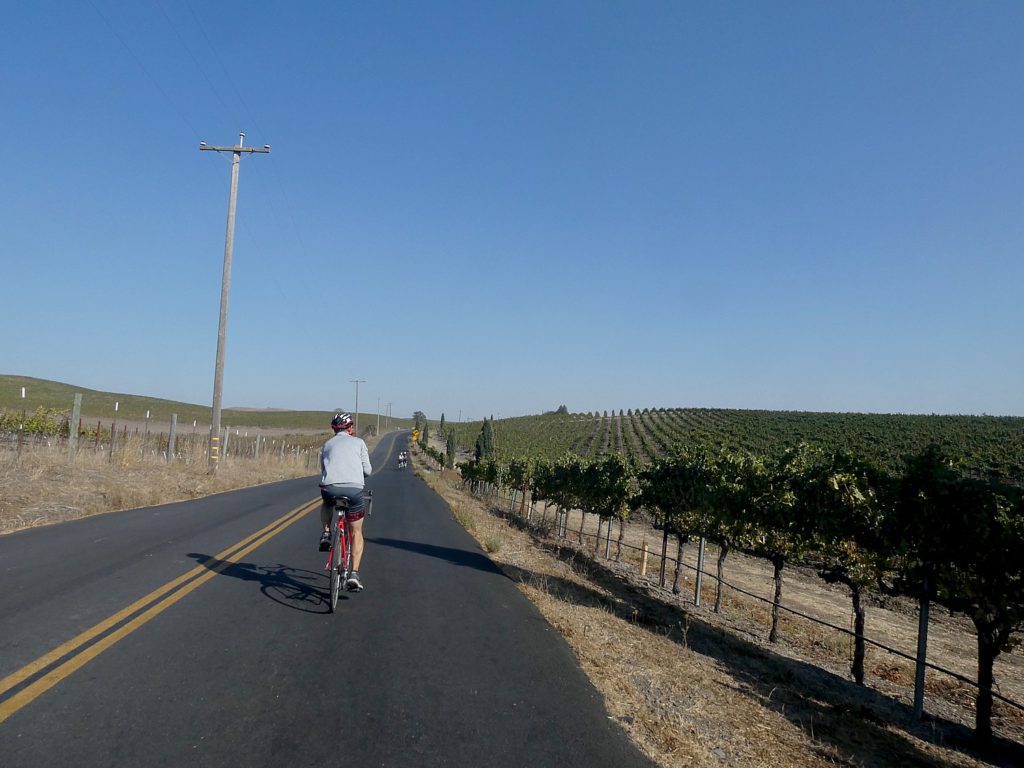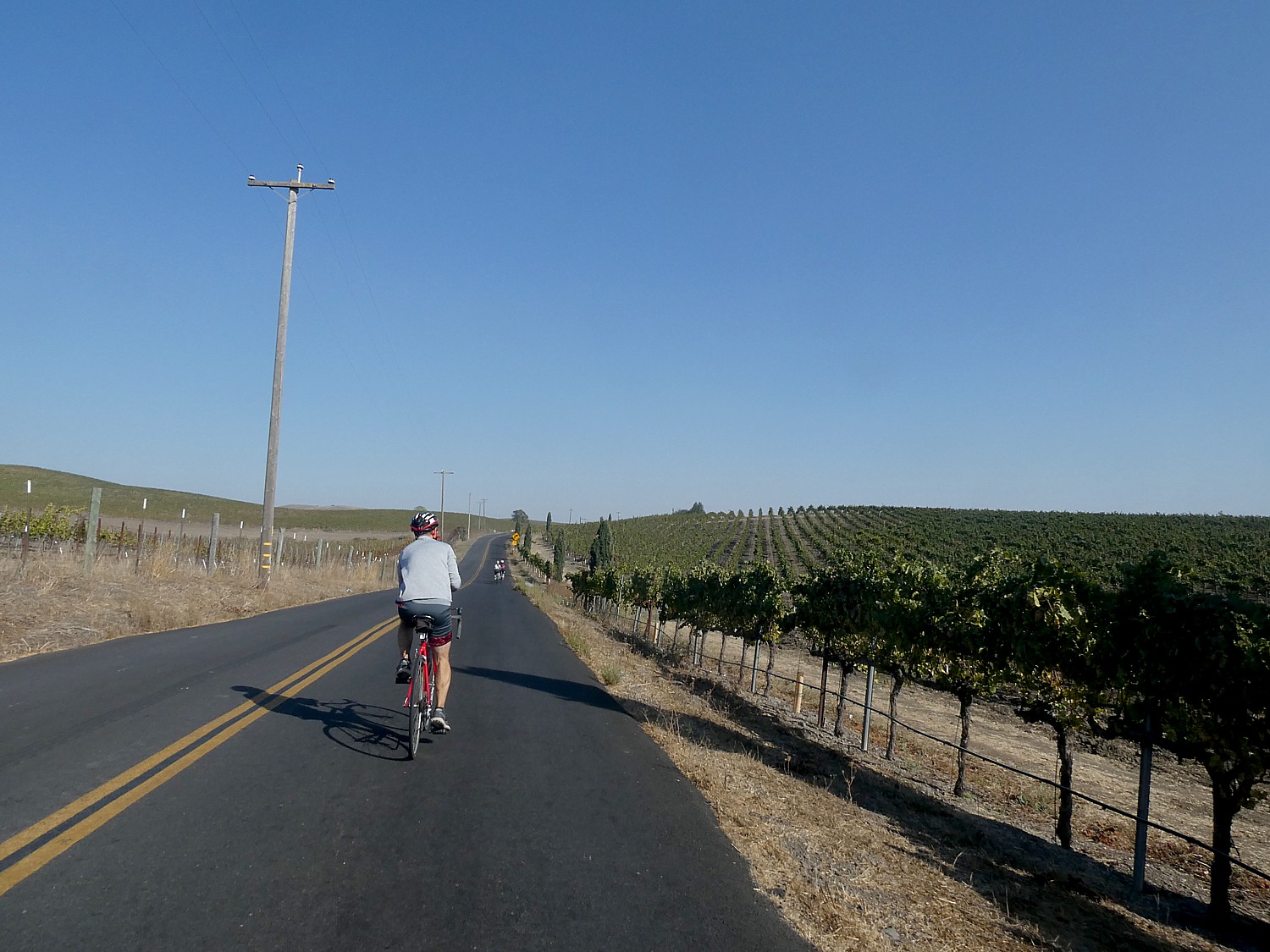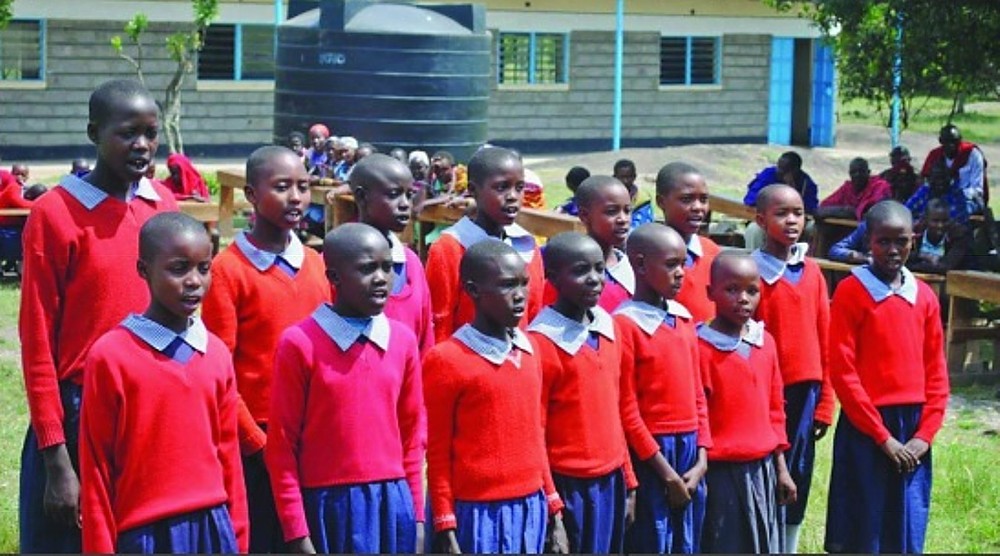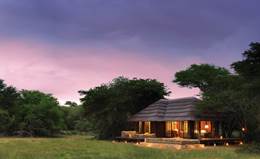
As the travel industry looks ahead, brands are preparing for how to promote a responsible recovery to Covid-19. Luxury travel advisor network Virtuoso, with over 20,000 advisors and 2,000 travel brands in more than 50 countries, is focusing on a ‘conscious comeback’ as hotels reopen in new and innovative ways. CREST (Center for Responsible Travel) and six other global nonprofit organizations have banded together to form the Future of Tourism Coalition with the belief that travelers will demand a more sustainable tourism marketplace. As people look for ways to reduce their footprint, work more responsibly with travel companies, travel to more sustainable communities and better understand the communities they interact with, we have rounded up leading destinations who are laying the groundwork for a more sustainable future – and how travelers can get involved.
If you want to invest in local communities…
Napa Valley, CA
Napa Valley Vintners (NVV), a nonprofit trade association leading the wine region since 1944, has partnered with UNCF to create a new scholarship program for people of color to pursue college degrees in subjects ranging from grape growing, winemaking, marketing, business and more, investing $1 million into the program. Each year over the next five years, NVV will invest $200,000 in scholarships and will encourage its members to bolster the scholarship program with donations to help even more students and to ensure the effort extends beyond five years.
Trancoso, Brazil
UXUA recruits and trains locals with little to no prior experience in hospitality. Owner Wilbert Das has invested in providing language training and university tuition reimbursement as well as one-on-one mentorship for those who need help in certain subjects that might have prevented them from completing secondary education. Despite classes being one-hour bus ride each way, three staff members completed their degrees in 2019, with 10 currently enrolled. Under the name of U-2020 initiative, the goal is to have 20 staff (out of 85) to complete or enroll in a university program by end-of-year 2020. UXUA also offers life coaching, including financial planning. As a result, 35 employees have bought land in the past six years.
Peru
Belmond helped found the Q’omer Wasicha Project in 2015 to promote organic vegetable management and cultivation in local communities as well as fair trade practices. Several communities in the Cusco region are now trained in the production of vegetables and herbs; the sustainable greenhouses allow the harvest of organic crops that would not usually survive the high altitudes of the Andes, including tomatoes, squash and zucchini.
East Africa
In collaboration with Africa Foundation, andBeyond offers a Conservation Lesson program for both children and adults living in communities close to wildlife areas. Through the initiative, over 1,600 students in East Africa were able to visit andBeyond’s properties, learning firsthand about the wildlife conservation that takes place so close to their home – partaking in game drives with rangers, swimming with dolphins and witnessing turtles hatch. For many, this is the first time in their life they have been exposed to fauna in a meaningful way. These conservation lessons and interactions with andBeyond guides have been a turning point in many participants’ lives; instilling the passion and knowledge of wildlife conservation and community development in them and playing a major part in influencing their careers.
Botswana
Belmond Eagle Island Lodge has worked with the nearby community village of Xaxaba Island to ensure potable drinking water for the community. Previously unavailable, Belmond donated a Jojo water tank, a leading solution in South Africa to provide safe water, as well as a bowser water tank to ensure a clean water source. Water is then regularly transported from the lodge to the village. Belmond has also assisted with providing medical assistance to the community through mobile clinics. Guests also have the opportunity to visit the neighboring Nxhoga village to learn more about the Khotla from the elders, the meeting and administration system, the cultural relevance of basket weaving and the importance of the fishing industry, witnessing how fishing nets are made.
Myanmar
Dr Hla Tun has been the onboard doctor for Belmond Road to Mandalay, which has been traveling along the Ayeyarwady River since 2004. In addition to his service for guests, Dr. Tun disembarks the river cruise three days per week to lead Belmond’s free health clinic that launched in 2011 as a free service to locals as well as patients who travel for miles on foot to receive medical attention.
If combatting climate change is your passion…
Antarctica
Just 200 years after the first man stepped foot on Antarctica, PONANT is launching the first electric luxury polar ship in 2021. It will be able to cut through ice floe up to seven feet thick – meaning it can reach rarely visited places like Peter I Island, where fewer people have visited than have set foot on the moon. It will operate with a mix of liquified natural gas (the cleanest fuel on the market) and electric battery (zero emission and can operate for up to eight hours at a time). Le Commandant-Charcot will be fitted with the latest technology for minimizing environmental impact, as well as a scientific laboratory for conducting operational oceanography missions and research. Under the supervision of naturalist guides and onboard scientists, guests will be able to participate in the research and experiments during sailings, including helping set up a research station on an ice floe; deploying an Argos transmitter, a satellite-based system which collects and shares environmental data; and taking water samples.
Costa Rica
In the 1970s and 80s, Costa Rica had one of the highest rates of deforestation in Latin America, but it has since reversed that trend and embraced reforestation. This was largely because of the government’s commitment to the cause, making it illegal in 1996 to chop down trees without approval from authorities. They also launched PES, a program that pays farmers to protect watersheds, conserve biodiversity, or capture carbon dioxide. This has positively impacted tourism. According to the tourism board, over 60% of visitors site nature as a reason for coming. The national parks and protected areas cover over a quarter of the country’s land. Nayara Resorts is committed to the cause. Their newest property, Nayara Tented Camp, sits on a hillside that was completely deforested by farmers over 50 years ago. Nayara hired a reforestation expert to rebuild the rainforest – which began with the planting of 40,000 indigenous trees.
Jamaica
Chris Blackwell’s Oracabessa Foundation is restoring the coral reef as a means to bring back marine life. In recent years, through the Foundation’s efforts, the Bay saw an increase of fish presence by 1,800 percent. Because of its success, the template is being replicated in other fish sanctuaries across Jamaica. New this year, Blackwell’s hotel GoldenEye in partnership with the Oracabessa Foundation opened a new dive shop that is open to locals as well as guests, offering coral planting opportunities, with profits going back into the foundation.
Maldives
Coral bleaching from factors like climate change and El Niño has led to the death of 60-90% of the Maldivian reefs. As the only luxury property that is located both on the beach and on a coral reef, Waldorf Astoria Maldives Ithaafushi offers guests the chance to adopt a coral frame ($175 USD per frame) during their stay. The coral frames are built using broken coral fragments found on local reefs, which are then rehabilitated in the property’s coral nursery and left to grow and regain their health.
If you want to save endangered animals…
Iguassu Falls, Brazil
When Belmond took over the Hotel das Cataratas in 2007, it not only invested in the hotel itself, but in the surrounding Iguassu National Park. The company committed 4 million Brazilian Reals to help update the park’s electricity supply, redesign the old park entrance and build a bicycle path from the gate to the hotel. It also donated 1.4 million Brazilian Reals towards the Projeto Onças do Iguaçu (Jaguars of Iguassu Project) to help preserve the last of the area’s jaguars. Ten years ago the population of these big cats was in sharp decline. The Jaguars of Iguassu Project installed night vision cameras around the park and used tracking devices fitted onto captured and released animals to study their behaviors and devise programs to improve their survival and breeding rates. Since the Jaguars of Iguassu Project began the number of jaguars has increased from around 9 to at least 28 (census of 2019). After exploring the national park, guests can stop by the hotel’s boutique and purchase a stuffed jaguar where a portion of the proceeds continue to support the project.
South Africa
Pangolins are mini (and adorable) dinosaur-like mammals. While not commonly known in the U.S., these native African anteaters are covered in keratin scales, which are highly valuable to poachers, making them the most trafficked mammal in the world. The species used to roam freely in the province of KwaZulu-Natal, South Africa, but have been locally extinct for decades. Private groups at andBeyond Phinda Private Game Reserve can have the once-in-a-lifetime opportunity to get up close and personal with these elusive creatures with andBeyond’s Pangolin Conservation Experience and assist in replacing tags and monitoring behavior.
If you want to lead by example…
Gregory Miller is a leader in responsible tourism, an expert in public-private partnerships and a trained environmental scientist who believes in working globally, acting locally, and protecting our precious natural and cultural resources. Greg joined CREST as Executive Director in 2019, bringing to the organization a global track record of high-impact results in sustainable travel and recreation, biodiversity conservation, and policy development. He is also a founder of the newly formed Future of Tourism Coalition, as well as the Outdoor Alliance, National Wilderness Stewardship Alliance, and Parks in Peril program.
Joss Kent joined andBeyond in January 2012 and brought with him a passion for working with local communities and preserving land and wildlife. He came to andBeyond after several years as CEO of Abercrombie & Kent. Starting his career as a game ranger, Joss has gone on to champion leading sustainability and community initiatives including Ocean Without Border and Rhinos Without Border and continuing a partnership with the Africa Foundation to work with local communities to fill their needs, from building schools to creating water filtration systems.
Cindy Pawlcyn is the chef behind Mustards Grill, a Napa Valley landmark for more than 30 years. She opened the restaurant when the region was still largely pasture, with few restaurants and even fewer chefs (none whom were women!). Then, at 28 years old, Pawlcyn was also among the first to plant an organic garden outside her restaurant. Today, Mustards is still a Napa favorite, and has served more than one million pork chops – her signature dish.
Charity Cheruiyot was the first female safari ranger in Kenya’s Masai Mara. Having grown up in a small village as a member of the Kalenjin tribe, Charity paved her own way to a future in the bush. She now is a favorite ranger among guests of andBeyond Bateleur Camp, teaching the brand’s values of care of the land, wildlife, and people.
Wilbert Das, the former creative director at Diesel, founded UXUA Casa Hotel & Spa in Trancoso, Brazil. Today, Wilbert’s life in Trancoso extends far beyond the (unmarked) entrance of UXUA. As the town’s “unofficial mayor,” he is steadfast in his support of the community and proves that eco-conscious efforts and a propensity for high design are not mutually exclusive.
For more travel features, visit:
goingplacesnearandfar.wordpress.com
www.huffingtonpost.com/author/karen-rubin
travelwritersmagazine.com/TravelFeaturesSyndicate/
goingplacesfarandnear.tumblr.com/
instagram.com/going_places_far_and_near/
‘Like’ us on facebook.com/NewsPhotoFeatures
Twitter: @TravelFeatures


